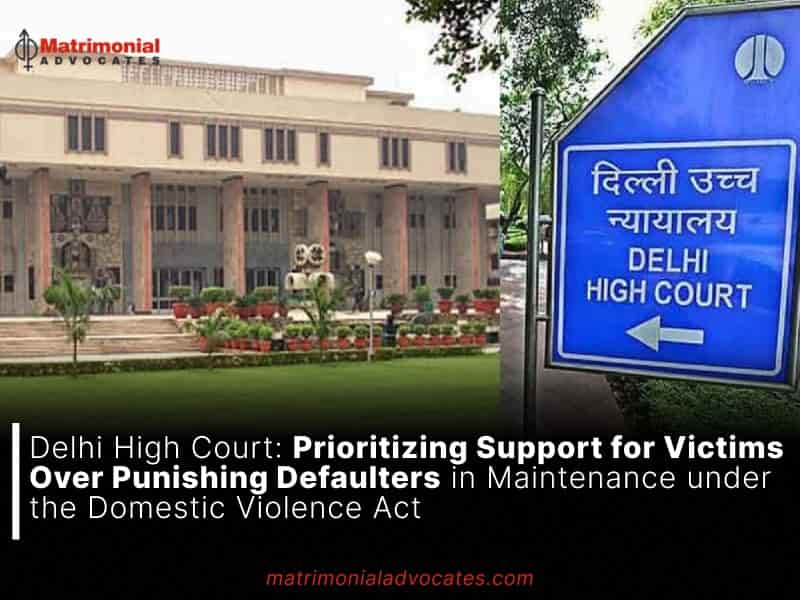
The Court has held that persons cannot be summoned by a trial court under Section 31 of the DV Act for a failure to pay maintenance ordered by the court under Section 20 of the Act.
The Delhi High Court has expounded that the primary objective of maintenance proceedings under the aegis of the Protection of Women from Domestic Violence Act (DV Act) is oriented towards the amelioration of the circumstances of victims of domestic violence, with a focus on remedial support rather than punitive measures directed at defaulters in payment. This elucidation was contemporaneous with a judicial pronouncement affirming that individuals cannot be judicially summoned under Section 31 of the DV Act for non-compliance with maintenance orders prescribed under Section 20 of the Act.
Justice Swarana Kanta Sharma further elucidated the differentiation, articulating that Section 31 is explicitly concerned with transgressions of “protection orders,” a category distinct from the pecuniary dimension inherent in the maintenance regimen delineated under Section 20 of the Act.
“Court is of the view that a person cannot be summoned (by a criminal court) under Section 31 of PWDV Act for non-compliance of monetary order such as order for payment of maintenance passed under Section 20 of PWDV Act,” the Court proceeded to conclude.
Importantly, the judge also observed that the primary goal of the DV Act is not to promptly imprison individuals for failing to meet their maintenance obligations.
“The aim of the Act was, therefore, to provide for protection, rehabilitation and upliftment of victims of domestic violence, in contrast to sending the aggressor to prisons. In other words, the purpose behind enforcement of monetary orders would be to provide monetary sustenance to the victim, and not the incarceration of the aggressor. The idea is not to immediately initiate criminal proceedings against the aggressor i.e. respondent as defined in the Act for non-payment of maintenance and to send such person to prison forthwith,“ the order stated.
The court expounded upon the procedural recourse available within the ambit of the Domestic Violence (DV) Act to address instances of non-compliance with pecuniary relief or maintenance obligations. Notably, individuals possessing regular income or outstanding debts were elucidated to seek redress through their employer or debtor, consistent with the court’s elucidation. In circumstances not concurring with these parameters, aggrieved parties were enjoined to resort to remedies enunciated in the Code of Criminal Procedure (CrPC).
Consequently, the court set aside a directive issued by an additional sessions judge in March 2019, which summoned a petitioner under Section 31(1) of the DV Act for ostensibly failing to discharge interim maintenance obligations to his estranged wife. The petitioner, entangled in a prior dowry harassment case initiated by his wife in 2016, was subsequently enjoined to provide financial support to his wife and daughter under the provisions of the DV Act. Following the wife’s assertion of non-compliance, legal redress was sought.
The petitioner contested the summons before the Delhi High Court, contending that Section 31 was inapplicable to grievances concerning non-compliance with orders for interim maintenance under Section 20 of the DV Act. Emphasizing that Section 31 exclusively addresses violations of protection orders and not infractions related to pecuniary reliefs, the petitioner propounded his legal argument.
Conversely, the wife affirmed the validity of the summoning order, underscoring the petitioner’s non-compliance with maintenance orders. Nevertheless, the High Court aligned with the petitioner, affirming that non-compliance with orders for pecuniary relief falls within the purview of Section 20(6) of the DV Act and pertinent CrPC provisions. The Court clarified that Section 31 specifically pertains to breaches of protection orders and does not extend to violations linked to maintenance or pecuniary relief orders. Consequently, the High Court allowed the petitioner’s plea, thereby annulling the trial court’s order summoning him under Section 31 of the DV Act.





